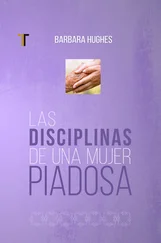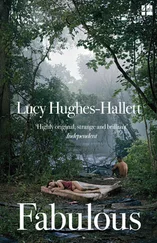‘The thyrsus ,’ I said, ‘resembles a teasel in appearance, but the ancients tell us it was in fact made up of a stalk of fennel and a pine cone.’
She laughed. Of course she did. I was afraid of the freedom with which her mind ranged, and took refuge in pedantry. A dark-haired gentleman in a russet-coloured velvet coat came up. She turned, and I lost her to him. I believe he is my Lady’s brother.
Rose beckoned me away. ‘We’ll leave them to their fête,’ he said. Armstrong remained and I could see, glancing backwards, that he was displaying the Roman pavement as proudly as though he had made it himself.
*
This morning my Lord’s eldest son was drowned. The boy and his brother were playing around the quagmire where lately the father and I had wallowed in mud. He slipped in water barely deep enough to reach his ankle-bone, if upright. He toppled face forward, wriggled round to rise, and in so doing thrust his sky-blue-coated shoulder so deep into the slime it would not release him. He died silently, while the other child whooped and shouted. How great a change can be effected in a paltry minute. The littler boy had made a slide at the base of what will be the cataract. Governor and tutors, seeing how he might so precipitate himself into the ooze, rushed to forestall him. And so the cadet was saved, at mortal cost to the heir. He fell unwatched.
A forester, perilously perched halfway up one of the distant ring of elms, ready to hack off a branch shattered by last winter’s storms, saw him lie, and shouted down to his mate, who began to race down the slope, his arms flailing as he leapt over clumps of broom and young bracken. He was wailing like the banshee; words, in his horror, forsaking him. Desperate to save, he increased the danger. Those near enough to where the poor boy lay to have helped him, looked not towards him, but at the man hurling himself so crazily downhill. So seconds were lost, and so the mud seeped into the little fellow’s mouth and nostrils and stoppered up his breath.
When I saw them clambering over their sire two days ago I thought I was looking at happiness.
Lady Woldingham sits by her dead boy as still and quiet as though the calamity had rendered every possible action otiose. The other children are brought to her from time to time, when their nurses despair of stilling their howls. She looks at them as though glimpsing them dimly, across an immense dark moor. To what purpose speech, in the face of such grief?
I cannot bear to come anywhere near my Lord.
*
The guests have all gone. They will return for young Charles Fortescue’s funeral, but yesterday they started up and fluttered away with a unanimity to match that of a murmuration of starlings. I would that I could do the same.
Ten years ago it was a common thing to see how, when a man’s brother or father was accused, that person’s friends would seem not to notice him when he passed by in the street. One would fuss with the fastening of a glove rather than catch his eye when it came to choosing where to seat oneself in the coffeehouse. Then I thought that we were all cowards, but prudent with it. When a country has been at war with itself every citizen has a multitude of reasons to fear exposure – exposure of miscreancy, but exposure also of those actions which might at the time of their performance have seemed most honourable. Now I think that the shrinking from those marked by misfortune was not the ephemeral outcome of civil war. It was not only that we feared spies and informers. There is something appalling about misfortune itself.
The tribulations of others are our trials. By our response to them we shall be judged, and I fear that, awkward as I am, it is a trial I am bound to fail.
It is less than a week since I wrote in these pages that Lord Woldingham was careless. I thought him boisterous and gay. I made of him a benevolent despot who would fill this house with colour and bustle. I mocked him, just a little, and so timidly that even I could not hear myself do it. I was like a child who thinks his parents omnipotent, and so licenses himself to jeer at them, and then is terrified to see them cry.
There was crying aplenty yesterday, but not from him.
He had not sent for me. But I knew that, however irksome he found my attendance, to stay away from him longer would prove me inhuman.
I found black clothes. Not difficult for me – my wardrobe is sober. When I judged that Lord Woldingham would have breakfasted, and might be walking out in the garden, with his dog Lupin waddling behind, I prepared to encounter him there.
As I stepped out of my room I all but knocked down a maid whose hand was already lifted to beat upon the door. It wasn’t until I looked at the note she handed me that I knew where I had seen her before – at Wood Manor. Cecily apologised for making so peremptory a request but asked me to come at once, and discreetly. My uncertain resolution to offer my condolences to my employer was laid aside in an instant.
There is a horse provided for my use. I told the groom I might be out a considerable while. I am not a confident horseman, but I asked the cob to hurry, and, heavily built as she is, she obliged with a pace that quite alarmed me. She made her way to Wood Manor almost without my guidance. Cecily was waiting in the entrance hall, and led me at once to a small room where the woman Meg sprawled on the rushes in a corner, bundled in a cloak, her head thrown back against the distempered wall, her eyes closed.
‘She has been set upon,’ said Cecily. ‘They chased her with dogs.’
‘Is she hurt?’
‘I think only very much afraid. She is prone to fits. Perhaps she has had one. Our man found her and saw off her assailants and brought her here across his saddle.’
‘I am no physician.’
‘Mr Richardson will be here shortly. But it is not only medicine we need. My cousin’s men harass her and her companions, but I do not think he knows it.’
We stood in the centre of the room, speaking urgently and low.
‘If he is informed, he will surely discipline them.’
‘Today is not . . .’
She was right. I too shrank from the idea of pestering him in his grief. But there was a worse reason for Cecily’s hesitation.
‘They say she killed the boy.’
I began to protest at such idiocy, and then recalled that I myself have been afraid of Meg.
‘But he died surrounded by his attendants. The woodcutters, the other children. So many people were present. Not a one has said that she was there.’
‘They say she can kill with a wish.’
The woman moaned, and a little blood ran from the corner of her mouth. The room smelt of last year’s apples. The sole window was veiled with cobwebs, and kept tight shut. We were as though imprisoned.
‘My mother too. They call the two of them weird sisters.’
I am a man of reason. I live in a nation that has been riven by doctrinal disputes for more than a century. I have listened to temperate, kindly disposed people swear that they will never again feel any affection for a brother, or a friend, because that other holds an opinion they cannot share as to what precisely takes place when the priest mumbles over the wafer of a Sunday morning. I am not an atheist. I marvel, as any natural philosopher must, at the intricate and ingenious thing the world is. But I am sure that, whatever the Creator may be, no human conception of him can be incontrovertibly right. Bigotry is abhorrent to me. But worse even than the intolerance of churches (and chapels, and conventicles) is the frenzy of the weak when fear drives them to blame their fellow beings for the catastrophes which lie in wait for us all.
‘I had thought that that madness was passed by.’
Cecily seemed to be holding herself upright with a great effort. ‘Meg’s teacher was called a witch, and ducked, and died of it.’
Читать дальше











